|
I will be assisting with communications and fundraising for the Lakota Waldorf School and their current capital campaign.
Located in southwestern South Dakota, the Lakota Waldorf School (LWS) is an independent, nonsectarian, and tuition-free school serving children, Grades K-8, living on the Pine Ridge Indian Reservation. Our mission is to provide a Waldorf Education integrated with a Lakota language and culture program that helps Lakota children:
Our long-term vision is that LWS empowers some of the most vulnerable and disadvantaged children in the country to create positive futures for themselves, their communities, and beyond. And that our indigenous mission serves as a source of cultural and social renewal to the people of the Great Oglala Nation. To learn more about this amazing program, please visit: https://lakotawaldorfschool.org/
0 Comments
Starting June 2020, I will start working for Forest Bridges as their Development Consultant & Grant Writer.
The organization's mission is dedicated to "Bringing people together to embrace sustainable forest habitat management solutions for Oregon’s 2 plus million acres of O&C forest lands." Visit https://www.forestbridges.org/ for more information. Saturday, October 14, 2017 8:00 am to 5:30 pmLane Community College Longhouse
4000 E 30th Ave Building 31, Eugene OR 97405 Purpose We believe health care is a right, not a privilege. Access to holistic health providers as well as healthy food is often limited to those who can afford it. Poverty and trauma, including historical trauma, create toxic stress in our bodies that research has shown promotes problematic health conditions. Herbal medicine, acupuncture, energy healing, mindfulness, movement, massage and other body work, should be accessible to everyone, including the poor and traumatized who cannot afford such beneficial pathways to health. The objectives of this conference are to learn mind-body-heart-spirit tools that professionals can integrate into our practices to further the healing of those we serve. Target Audience This one-day conference is designed for healers and health professionals, including MD, DO, ND, DC, RN, LAc, PA, NP, Herbalists, Midwives, Energy Healers, Counselors, Community Health Workers, LMT and body workers, as well as students entering the healing professions. Cost $75 includes lunch. $40/student or low income, with work trades available. For those only wanting to attend the lunch and the panel discussion, cost is $12.00 Lodging As this is a one-day conference, we have arranged no lodging. However, some in our group have Airbnb, or we may be able to help find people willing to host overnight guests. Please contact us for more information. Venue We are honored to be able to use the Lane Community College Longhouse for this event. The parking is excellent on a Saturday, it is the furthest building when entering the main parking lot. LTD bus runs regularly. This is a special place, please respect the following guidelines for its use. Lane Longhouse Code of Conduct
CEU – 8 hours or 8 units of Continuing Education is offered for Health Professions by Lane Community College at no extra fee. Certificate given at the end of conference. Make your entire weekend an herb fest!We specifically scheduled our Decolonizing Natural Medicine conference to coincide with Mountain Rose’s herbalism event to encourage people from out of this area to conveniently attend both. Mountain Rose Free Herbalism Project | Sunday, October 15 from 12-5 pm | Mount Pisgah, Eugene Special event open to all. The Mountain Rose Free Herbalism Project will be held at Mount Pisgah in Eugene not far from the LCC Longhouse. This is an interactive community event with botanically inspired lectures from experts in the field, live music, vendors, and plenty of free organic herbal tea! Conference Schedule7:30 – 8:30 am Registration & Continental Breakfast 8:30 – 9:30 am Movement Therapeutics; The Diagnostic Skills of Tai Chi — Michael Vasquez Practice and discussion around the framework for returning to Natural Intelligence, how traumas are released, and the ways to recognize and work with imbalances. Movement Therapeutics is a primary tool in Mind/Body centering, behavioral changes, cognitive repatterning, and the overall release of cellular constriction. QiGong/Internal Practices give us a foundation to develop and evolve our nature, a self-learning tool that develops our diagnostic sensory intelligence; the ability to feel and interact with an imbalanced area/problem. This naturally develops a deep foundation for working with others. As we choose to face the traumas and imbalances within ourselves, we develop the capacity to work well with others and respect all forms of life. When we consider working with decolonization, we know that we will need to work with others, play well with others, and find and share our common connections. Learning to appreciate different perspectives, being generally flexible and open, harmonizing and shifting in timely manners, and looking for “workable solutions” is what one might refer to as primary evolutionary skills. Michael Vasquez After over 30 years as an executive chef, Michael currently works full time teaching in the arts of Tai Chi, QiGong, Yoga, herbs, diet, and Traditional Chinese Medicine. He is the Director of Transformation Arts which provides educational presentations, online instruction, and instructor training programs to schools, corporate wellness programs, non-profit organizations, and Native programs, as well as community, senior, and child wellness programs. He is the Co-Founder of Red Earth Descendants and is currently the lead in the Golden Garden Elder Lunch Project. 9:30 – 11:00 am Healing Community with Plants — Shelagh Brown What does it mean to decolonize? Recognizing provider privilege, unpacking and providing real tools to provide the most effective and just holistic care should be the cornerstone of our practice. We all live at various intersections of both privilege and marginalization, so learning how to best navigate that will allow us to truly practice in a way where we do no harm. We will also discuss being culturally humble, understanding the population you serve and understanding non-compliance in your clients and how to address it. Using group visit models many integrative practices are using, Shelagh will discuss how she has found giving herb walks is a phenomenal way to bring patients together in community to meet one another and spark and interested in nature and have a more vested interest in their healing. Shelagh Brown, MSc Shelagh holds a BS in Herbal Sciences and a MS in Acupuncture and East Asian Medicine from Bastyr University. She also has completed a yoga teacher training at the Samayra Center for (Human) kindness as well as additional training in Integrated Movement therapy (a yoga based therapy), medical qigong, craniosacral, and aromatherapy. Shelagh approaches all aspects of care through an anti-oppression lens and is deeply dedicated to carrying forward conversations about race, privilege, and institutionalized oppression and how these things affect health as well as access to care. 11:00 – 11:15 am Break 11:15 am – 12:15 pm Creating New Healthy Traditions — Jakob Sletteland Evolving from foraging in the wild to foraging in grocery stores, we have lost knowledge of indigenous foods, understanding heredity diets, food traditions, and lost food security. Diet and lifestyle related ‘diseases of civilization’ such as metabolic syndrome, type 2 diabetes and cardiovascular disease have reached epidemic proportions globally.. This disproportionately affects people of color and the poor, and can only be described as a public health disaster. Informed by traditional medicine and modern research, this session will introduce participants to the etiology and politics of insulin resistance, and provide a no-nonsense natural therapeutic approach. Jakob Sletteland MSc RH(AHG) In addition to a background in ecological defense and social justice activism, Jakob Sletteland is a practicing registered herbalist and clinical nutritionist with ten years of experience in the field. Jakob regularly volunteers his time as a practitioner with Occupy Medical in Eugene, a free integrative medicine clinic, and has organized and run back-country bush clinics at annual indigenous ceremonies in the Pacific Northwest over the last eight years. His private practice, Vital Force Natural Health, is located in Eugene/Springfield. 12:15-1:15pm Lunch Plant Based Buffet Lunch focusing on Indigenous and Locally Grown Organic Foods Tickets for lunch only are available on the registration page for guests who do not want to attend the conference. 1:15 to 2:15 pm Food Grows Community Panel Facilitated by Clare Strawn Modern research indicates what Indigenous peoples have always known: That growing and harvesting food has incredible health benefits, such as soil microbiomes that have antidepressant and antioxidant properties; access to fresh organic non-GMO foods; valuable exercise; and a connection with the earth that is healing to the spirit. This panel will discuss several innovative community garden programs. Clare Strawn, PhD puts her PhD in Urban Studies and Master’s in Education to work using collaborative action that empowers communities. Her perspective is that health and resilience reside with individuals in community. She is the vice chair at Zaniyan Center. PANEL MEMBERS Golden Garden Elder Lunch Project – Michael Vasquez – Reality Kitchen is a nonprofit café and bakery in the River Road area which hosts a weekly free lunch for Elders. The Golden Garden project uses a donated plot and volunteers grow food to support the Elder lunch as well as the local food banks. Volunteers from across the community gather and contribute time and talents to harvest and help prepare food. The convergence of organic food grown within a few miles, together with enthusiastic volunteers and young adults in conversation with elders, has created a lively and growing community worlds away from institutionalized free lunch programs. Eagletree Herbs – Daphne Singingtree – Located in a North Eugene suburban neighborhood on less than ¼ acre, this permaculture urban homestead focuses on growing medicinal herbs, but it also has over 15 different varieties of fruit trees and berries, vegetable gardens, mushrooms, bees, and chickens. Eagletree offers a program for interns to learn to grow and harvest herbs as well as make herbal products. To date Eagletree has trained more than 100 student interns at no cost. Food Gathering Traditions from the Northwest Tribes –– Stephanie Craig The knowledge of gathering and harvesting of plants for food, medicine, baskets, and items for everyday life was in danger of being lost completely with the cultural genocide of the native tribes of the Northwest. Stephanie will share knowledge of plants from her tribal heritage the Confederated Tribes of Grand Ronde, Kalapuya, Umpqua, Takelma Rogue River, Clackamas Chinook and Iroquois. Stephanie Craig, MA is a traditional basket weaver and owner of Kalapuya Weaving. She has a Bachelor of Arts in cultural anthropology with an emphasis on Northwest Native American cultures, an interdisciplinary Masters of Arts degree comprised of coursework in cultural anthropology, cultural museum studies and folklore studies. She is passionate about giving back to the community as part of the next generation of Tradition Bearers, teaching foraging for native foods and medicines. Eugene Avant Gardeners – Plaedo Wellman – A Eugene organization focused on using artistic and innovative approaches towards creating a resilient local food network, that uses permaculture techniques to encourage and inspire people to grow food together. The Avant Gardeners have given away over 10,000 plant starts, hosted over a dozen workshops and over a hundred work parties, given away hundreds of pounds of food, assisted numerous other organizations and have published a series of popular zines. Plaedo Wellman is a philosopher, artist, activist gardener. Check out his TEDx talk “Find your Farmily with Community Gardening” linked from his website plaedo.com. 2:15 – 3:15 pm Herbal Pain Relief; Effective Alternatives to Opiates — Daphne Singingtree A look into the physiology of pain and the herbs and categories of herbs that can be used to treat pain. How herbs can be used for chronic pain management as alternatives to opiates. Daphne Singingtree, MEd, is a Medicine Maker and owner of Eagletree Herbs, a retired midwife, the author of The Birthsong Midwifery Workbook and numerous other midwifery publications. She helped write the Oregon Midwifery Law for Direct Entry Midwives and is a co-founder of the Midwifery Education and Accreditation Council. She is the founder of Zaniyan Center. Her heritage includes Standing Rock Sioux Tribe and she is active in the Water is Life movement. She is in the process of developing an Holistic Community Health Worker Program. 3:15 – 3:30 pm Break 3:30 – 4:30 pm Moving Toward Trauma-Sensitive Healing Arts Practices — Elaine Walters Individual and collective experiences of violence, abuse and other trauma are at the root of many of our most challenging health and social problems. These problems have existed throughout human history, as have efforts to survive and heal from them. Many modern approaches to treating or healing trauma have roots in traditional healing systems that have been in use for thousands of years. At the same time, many practitioners have not been adequately trained on how best to organize their work in ways that are sensitive to the needs of survivors in their care. This presentation will introduce participants to new research on the connections between early life adversity and later life health problems (the ACE Study), and provide an overview on trauma-sensitive practice, including information on preventing and managing vicarious trauma and promoting workplace safety. Elaine Walters is the founding Executive Director and lead trainer at the Trauma Healing Project, an organization that provides professional and community training and direct healing support for survivors. Prior to this position she coordinated the Sexual Assault Nurse Examiner Program for the Attorney General’s Sexual Assault Task Force in Oregon and the Domestic Violence Intervention Project in Lane County working within two large healthcare organizations. For the last 20 years she has been a consultant, trainer and community organizer working to address and eliminate intimate violence. She has designed and facilitated workshops and trainings on many related topics and has provided direct services and support to youth and adults impacted by violence, abuse and other forms of trauma and oppression. She is involved in the effort to expand accessible trauma healing resources and to implement trauma-informed care practices regionally and statewide. 4:30 – 5:30 pm Occupy Medical; Bringing Herbs to the People — Sue Sierralupé A free clinic which evolved from the Occupy street protests, recognizes the role that stress, poverty and lack of access has on health. This clinic provides integrative care to all using conventional medical care, herbs, energy and body work, behavioral health as well as social services. Sue Sierralupé RH, is a Certified Master Herbalist, Master Gardener, professional writer and Sustainable Landscape Specialist. Sue also volunteers as the clinic manager and herb team leader at Occupy Medical clinic. She is the co-author of The Practical Herbalist Herbal Folio series and author of The Pocket Herbal: Medicinal Plants that Changed the World. Follow her blog at HerbalistManifesto.com for commentary on herbs, parenting, nutrition, and a whole lot more or find her on Facebook at Sue Sierralupé. Registration https://www.eventbrite.com/e/decolonizing-natural-medicine-increasing-access-to-holistic-health-for-all-tickets-37571160352?ref=ebtn  I am very excited to be joining an amazing organization here in Eugene, OR called WellMama as the new, part-time executive director. About half of my time will be dedicated to grant writing. WellMama’s Mission, Vision, and Core Values: WellMama Maternal Mental Health and Support Services is a comprehensive nonprofit providing pregnancy and postpartum mental health support services to women and their families in Eugene and Springfield, Oregon. We support families struggling with emotions related to reproductive health issues, including pregnancy, the first few years postpartum, adoption, infertility, and perinatal loss. Our Mission: WellMama provides support, information, advocacy, and access to appropriate treatment to women who may be suffering from perinatal mood or anxiety disorders as well as mental health conditions related to all reproductive health events. WellMama is dedicated to raising community awareness of perinatal mental health by providing education on prevention, universal screening, and appropriate treatment and resources to women and the professionals who serve them. Our Objectives: WellMama volunteers provide accurate information and confidential, nonjudgemental support to women, their families, and support people through our free warm-line, email support, and group support services. WellMama provides education, consultation, and training to the professional community on the most recent research on prevention, screening, diagnosis, and treatment of perinatal mood and anxiety disorders. Our Values:
 FWEC is excited to be collaborating with two amazing southern Oregon organizations starting on October 1st. I actually started my grant writing back in 2002 with the Sugarloaf Community Assocaition, so this feels like a completion of a synchronistic circle! Building and renovation projects will include: driveway, bathroom, classrooms, irrigation system, fencing, permaculture plan, community center, solar power system, pond, and audio/visual systems. 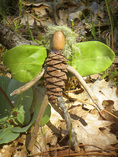 New to FWEC is the Woodlands Charter School in Murphy, OR. The mission of the school is "to kindle a life-long love of learning by providing a developmentally appropriate, arts-integrated curriculum which engages the whole child: head, heart, and hands. Rich academics interwoven with human and nature studies foster a sense of belonging within the human community and a reverence for the beauty of the natural world. Our school will thrive with on-going family involvement and inspire the support of the greater community. Our nurturing learning environment will awaken each child’s thinking, creativity, and emotional sensibility." We will seeking funding for projects similar to the SCA's priorities. Welcome to both organizations!  Passing this on for my friend and high school alum, Jamie Riley. We grew up right outside of Alpine Valley, WI, where I saw my first Dead show. Purchasing this is amazing print helps to assist Jamie in supporting his partner, Jennifer Stokes, who is bravely working to heal Pseudotumor Cerebri (aka Intercranial Hypertension) and a myriad of other associated illnesses (seehttp://www.gofundme.com/beating-brain-surgery). Jamie has had to miss work to care for Jennifer and their four boys, and is slowly releasing his amazing photographic prints to help with their mounting medical bills. From Jamie: “One from my vault... Commemorating 50 years of touring and playing incredible live shows around the world, I've dug into my film archives and created this unique montage of two back to back images I made at one of the Alpine Valley concerts while shooting for the Walworth Times Newspaper in the late 80's. These negatives have been scanned at a very high resolution and are beautifully rendered on 13x19 Epson paper and archival ink by me in my home studio. 500 signed and numbered copies are all that will be created. $75.00 plus shipping & handling.” You can contact him at [email protected]. I got #1---get yours! Only blessings and happy trails, Ahavah One of my new clients is Helping Hands Around the World, led by their Executive Director, Agbora Naanee (based in Portland, OR). Your tax deductible donation helps provide an education (and meals) to impoverished children in Biara, Nigeria. Agbora has been shouldering financing the Dookue Memorial School alone, and I will collaborate with him on grant writing and fundraising to expand this important project. Contact info is below, and please feel free to share on your FB pages! G-d bless!
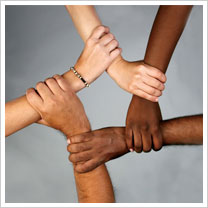 The business world can be dog-eat-dog environment, and that takes a strong person to succeed. And traditionally, that strength has been associated with masculinity. A recent study now suggests that having authority to hire and fire brings an added burden of depression to women. I suspect part of the reason for that is the media's depiction of women's relationships as competitive, catty and marked by jealousy and manipulation. Too many women haven't learned yet how to be effective supporters of each other, but that's changing rapidly. My mission is to help women connect with each other to make the world a better place. I have a vision of propelling the effort to build a global community of strong women, who will help one another succeed, and mentor girls ascending the ladder into adulthood. Women helping women: it can be a real movement to grow a sisterhood for a better tomorrow. In the developed world we may forget the difference small gestures and connections can make. I recently joined an inspiring international women's empowerment program, which has shown me many things, including how just a little training and a microloan can help a woman start her own business. An additional lesson I've learned from this work? Well, we don't have to reach across an ocean to help another woman in her journey to success. The same principles apply when we extend a hand across the room. And here's how you will benefit if you join me in this effort. Here are five specific reasons why all women should work to empower other women. 1. Helping one woman helps all women. When someone smiles at us, we naturally smile back; when someone is in pain, our bodies also reflect that emotion and physical sensation. James Gross's research at Stanford shows that our wiring for empathy is so deep that, just by observing someone else in pain, the "pain matrix" in our brain is activated. They actually measured it. Human rights activist and Leading Women contributing author Rebecca Tinsley writes that Western women often have difficulty responding to the needs in developing countries. They feel overwhelmed by the urgent sense of need, so they choose to turn a blind eye. However, Rebecca couldn't do that in her own work. When she met the refugees of Darfur, she wrote their stories, and founded her own foundation to educate the women and children who survived genocide. She advises Western women to choose a small population to start and see how much change you can create. One of Rebecca's programs has transformed 50,000 lives with everyone working to lift others up. 2. It's our nature and brings out the best in all of us. Believe it or not, part of our survival instinct is to help each other. As a crisis team leader, I worked with others to help the victims of 911, Hurricane Katrina and other catastrophes. It always amazes me to watch people who have lost everything turn to help other people. The worst circumstances seem to bring out the best in us. But we shouldn't wait for a catastrophe to help others. 3. It is the greatest gift you can give (and it doesn't cost a dime). When you show someone that you think she has value, you can transform her life. Author Marcia Reynolds once told a story about the lowest point in her life, when she found herself in jail. She connected with a fellow inmate who shook her awake and challenged her to figure out who she was beyond trying to be the best at everything. All it takes is one person reaching out to another and giving the gift of self-worth. Kindness is portable, and always available to us. We just have to make the choice to tap into it. 4. You will live a longer and happier life. We've all heard the adage, "It's better to give than to receive." Now science is backing that up. When giving is accompanied by selfless feelings, it actually activates the pleasure centers of the brain, releasing endorphins. This chemical reaction, in turn, reduces inflammation, which causes a number of life-threatening diseases from cancer to heart disease. Beyond the action of giving your time, treasures or talents, the process of connecting with others is what gives us more longevity. Positive social interactions, such as "lifting each other up," actually add years of happy, stress-free living to our lives. 5. You can connect with others to transform the world. The greatest feats of activist efforts throughout history, across the globe, have come from community and connection. It's time for all of us to get connected, reach out and lift up each other. You can start with a kind word, a helping hand or just remembering to connect and acknowledge the importance of the people you meet. Are you willing to start now and use your power to ignite others to feel empowered? Let us connect to create a better world! By Nancy O'Reilly I will be the Instructor for this training in May or June! Keep checking back for date and location.2/24/2015 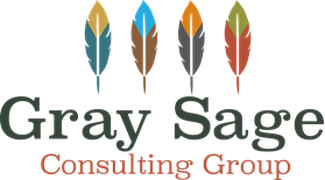 http://www.graysagegroup.org/grant-development-training.html Training Opportunity Announcement We are pleased to announce our workshop The Essentials of Foundation Funding. Foundation Grant writing is a both an art and skill (and some luck). This two day workshops will acquaint participants with the necessary steps in successful grant writing to private and public foundations and trusts. Topics covered include:
Time and location to be announced soon! The Community Center for the Performing Arts in the historic Woodmen of the World (WOW) Hall sits at the West end of downtown Eugene, a pink but low-slung 1932 Art Deco building that once served as a venue for dances and gatherings of its era.
In restoring the historic building and reviving it as an arts center, WOW Hall had received grants from the Lane County Cultural Coalition and Oregon Arts Commission, as well as the Kinsman Foundation and other prestigious groups. But FY14 marked the first time the intersecting arts and heritage organization received a Cultural Trust Development grant award. “There are organizations that have applied for Cultural Development grants multiple times, and it takes a few attempts to get their proposal just right,” said Trust Manager Kimberly Howard. “You're rooting for them and it becomes a happy occasion when they make it.” Such was the case with WOW Hall. As an Arts Commission and cultural coalition grantee, the group was familiar to the Trust. “(WOW Hall grant writer) John Pincus was like a celebrity in our office. He called frequently during the spring of 2013 – he was taking the application process very seriously,” said Trust Donor Relations Coordinator, Raissa Fleming. “When their grant application came in, 11 minutes ahead of deadline, we all cheered.” Cultural Development grants are awarded by panels of independent subject matter experts, and "the WOW Hall application was determined by the Heritage Panel to be a well-written application for a project that showed great merit," said Howard. Staff had the opportunity to tour WOW Hall in April, two weeks in advance of National Heritage Month (May), and they were charmed and enchanted. The building acts as a performing and visual arts center, with notable Oregon bands playing in an intimate downstairs coffee house; various dance classes, community theatre and musical performances in the main hall, and monthly exhibits by local artists. Murals adorn the outside walls and landscaping brings cheer to other-abled patrons using the ADA ramp at the side of the building. Doors, gates, archways and most fixtures have been lovingly restored to their former glory. The Cultural Development grant helped WOW Hall restore the curved wooden built-in benches lining the main hall. Joining the tour, painting contractor Ron Saylor mentioned that his business has flourished with the restoration. “This was a big job for us,” he said. Saylor has also done work on the new Oregon Contemporary Theatre building a few blocks away and is gaining a reputation in the cultural community for his diligence and diversity of skill. “It's an important example of how heritage and the arts fuel the Oregon economy,” said Howard. “The money granted by the Cultural Trust stays in Oregon and helps local businesses grow – whether that be the arts venue itself, or the restaurant, hotel, retail shop down the street, the print shop who prints playbills, or the contractor and subcontractors who remodel and restore the buildings.” Meanwhile, WOW Hall plans to recreate the original streetlamps around the center, leading to more work for Lane County lighting, electrical and historic preservation contractors, enhancing the downtown experience and giving the community an ever more vital center for the arts. - See more at: http://www.culturaltrust.org/featured-grant/wow-hall-community-center-performing-arts#sthash.z53M1QNY.dpuf http://www.culturaltrust.org/featured-grant/wow-hall-community-center-performing-arts Please join us on February 5th at the NEDCO Hatch Program building in Springfield. This will be a great opportunity to:
- Learn about upcoming events and programs in 2015, including our new art curating program! - Find out more about our upgraded membership program. - Connect with other local artists and find out how to get involved in all the fun activities at ESAP. - Meet the new ESAP board members and hear about the great ideas and skills they bring to ESAP. - Give us your feedback and tell us ideas you have that support the ESAP mission. To learn more about the Eugene Springfield Art Project visit our facebook page or website at www.eugenespringfieldartproject.org We look forward to seeing you there! Over the next year, these communities will use their grant funds to organize themselves for five-year Community-Based Partnerships. Of the 25 Organizing Grant Communities, up to 10 will be selected for Community-Based Partnerships beginning in 2016. These partners will join NWHF in transforming institutions, programs and policies to deliver better outcomes in early life, equity and community health.
We look forward to working with all of the Organizing Grant Communities, who hope to impact everything from African maternal and child health, to families impacted by or at risk for family violence and sexual abuse, to rural Latino communities, and much more. With the support of our partners, Healthy Beginnings+Healthy Communities will help communities improve health, from birth to high school, by 2020. http://www.northwesthealth.org/news/archive/2015/1/8/announcing-healthy-beginningshealthy-communities-organizing-grant-communities 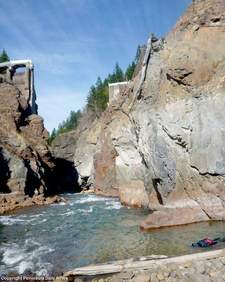 OLYMPIC NATIONAL PARK — The sight of a chinook resting quietly by the bank of the Upper Elwha River was one that Mel Elofson had awaited for 56 years and worked toward for 20. It was the first sighting of a salmon above the Glines Canyon Dam site in 102 years. “It was awesome,” he said. EDITOR'S NOTE — See related story today, "Raft trip on Elwha River shows its newly untamed nature," http://www.peninsuladailynews.com/article/20140914/NEWS/309149956 The river's once-legendary salmon runs had been blocked by construction of the 108-foot Elwha Dam without fish ladders in 1912, blocking access to spawning grounds. The 210-foot Glines Canyon Dam also was built without fish ladders in 1927. Both of the dams, which once provided electricity for a growing Port Angeles, were demolished in a $325 million project that began in September 2011 as part of the nation's largest river restoration project. Elofson, assistant habitat manager with the Lower Elwha Klallam tribe, saw the chinook, also known as king salmon, while he was conducting a juvenile fish study for the tribe and for the National Oceanic and Atmospheric Administration. It was Sept. 2, a mere week after the last 30 feet of the river's last dam — Glines Canyon — had been blasted out. So he was surprised by what he saw. “I just happened to walk up to the edge of the stream about 100 meters above the dam, and there it was, sitting right next to the bank,” Elofson said. “It was female, probably 20 to 25 pounds. It was in really good shape. “It was exciting,” he said. He notified Olympic National Park officials, and biologists confirmed Elofson's sighting last week. Snorkeling above the dam site, they found three adult chinook, all between 30 and 36 inches long, in the lakebed, said Heidi Hugunin, who explored the water along with her colleague, Anna Geffre, on Tuesday. “She spotted the first one,” Hugunin said. “She jumped out of the water, and she's waving her arms frantically. She starts pointing at the river. “We did some victory dancing.” The biologists began their snorkel survey in Rica Canyon 3 miles above the Glines Canyon dam site, which is some 13 miles from the mouth of the Elwha River, and swam downstream through the former Lake Mills to a point just above Glines Canyon. The salmon were spotted between Windy Arm, a spot halfway down the former lake on the east side of the river, and Glines Canyon. The biologists saw two resting near submerged stumps of ancient trees, while a third was found in a deep pool. “The river has scoured away all the sediment,” Hugunin said. “The banks of the river as it once was is reappearing, and so we are seeing a lot of the pre-dam stumps.” The summer/fall run of chinook began in June and will taper off late this month or in early October. “These are the returning chinook salmon, coming from the ocean,” said Barb Maynes, park spokeswoman. “We've been seeing quite a few below Glines Canyon Dam, but these are the first seen in 102 years above the old dam site. “The chinook are coming back into the river.” In addition to the three chinook, biologists counted 27 bull trout, nearly 400 rainbow trout and two small sculpin during their survey above Glines Canyon. Two weeks ago, park biologists had confirmed that two radio-tagged bull trout had migrated through Glines Canyon and were in Rica Canyon. The three chinook observed last week were not radio-tagged. The following day, biologists counted 432 live chinook in a 1.75-mile section of river just downstream of Glines Canyon but still above the old Elwha Dam site. Biologists hope to do another survey this week, Hugunin said. Now that the river has been freed, Elofson, who grew up playing on the banks of the river and is now 56, said he is elated to see the results. “All they had to do was open the river, and the fish are drawn to it,” he said. The Klallam people, who have lived beside the Elwha River for thousands of years, devoted years to advocating the removal of the dams until Congress passed the Elwha River Restoration Act in 1992. Elofson's first task when he was hired by the tribe in the 1990s was to help map out Lake Mills delta topography in what he said was a pilot project in preparation for taking the dams down. “I worked for the tribe for 20 years or so, and I was waiting for that day to be able see them above both dams,” Elofson said. The sightings of chinook s in the upper river confirm that the dam demolition so long-sought has had its intended result. “It's definitely showing that the salmon are resilient,” Elofson said. “Open it up, and they'll go there. “It'll be great to see them come back in a few years in numbers,” he said. He expects those numbers to match the stories of more than a century ago. “It's going to take awhile, but they will get there,” Elofson said. “There's nothing blocking them.” ________ Managing Editor/News Leah Leach can be reached at 360-417-3531 or at [email protected]. Last modified: September 14. 2014 10:34PM http://www.peninsuladailynews.com/article/20140915/news/309159971/0/SEARCH Check out the link below for an excellent opportunity for local consultants!
http://grantmatrix.com/node/121 |
Author: Ahavah OblakMother, Jewish, Nonprofit Advocate, educator, grant writer, curriculum developer, dual US/Israel citizen, friend, dancer, lover of life. Categories
All
Archives
March 2021
|

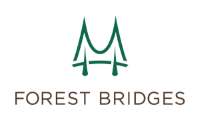

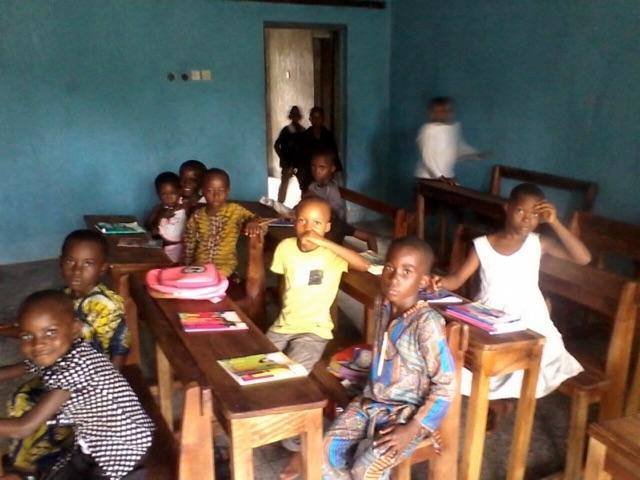

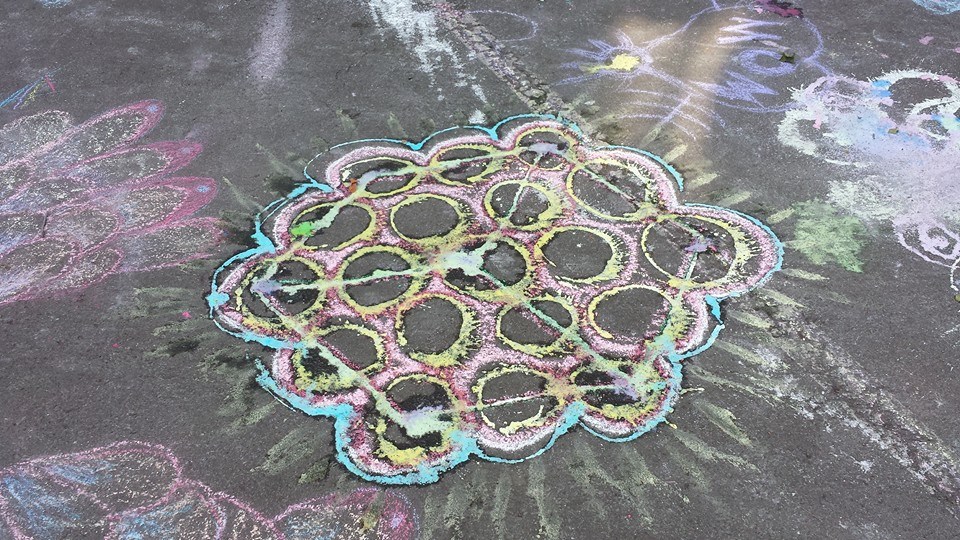
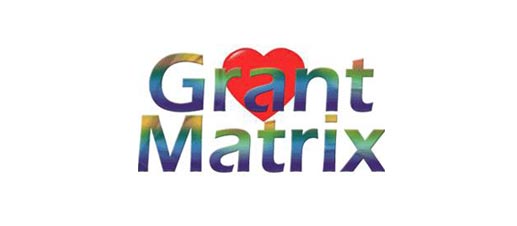
 RSS Feed
RSS Feed